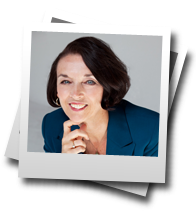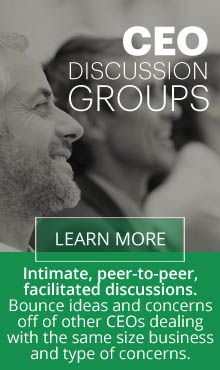 “Thank you for a job well done!” (internal voice: No big deal)
“Thank you for a job well done!” (internal voice: No big deal)
“Great results” (internal voice: You should have seen all the things that went wrong)
“You can do that better than anyone else I know” (internal voice: I don’t believe that for a minute. You’re just humoring me.)
Internal filters. We all have them. When we were young and impressionable (meaning before age 5), we believed everything we were told. Those experiences of being validated, praised, empowered, laughed at, humiliated, injured (both physically or emotionally), incapable of doing things ourselves, powerlessness, unworthiness left us with a frame of reference which shaped everything that came after it. With repetition our self concept took form around what we were told about ourselves and how others reacted to us. The filter we developed allows us to see things very selectively. It filters out those items that don’t reinforce the self concept formed during those early years. Now as adults we can be told how great we are and we dismiss it with: ‘If she only knew,” “But look at all the things I do wrong.” “I’m an imposter. Someday someone will find out I’ve always been faking it.”
The head that thinks up all these things is not a very nice place to live. It’s painful, emotional, fearful, inhospitable, dark, and depressing. Because we want to avoid this pain we plan escape routes. Some escape through alcohol and drugs. Some get addicted to shopping or sex or gambling or hoarding. Some get addicted to work, hence the term ‘workaholics.’ Others escape into movies, TV, music, sports, racing cars or boats and the list goes on. It’s not that we don’t enjoy these activities. But sometimes we do them in excess and we stop enjoying them. Yet we choose to continue doing them because they create so much brain activity that it shuts out the little voice that says, “I’m not good enough.”
But when we stop the escape activity, the voice comes back saying, ”Be careful, you might piss somebody off and they’ll reject you just like before when your mom abandoned you. (She probably lost you for 5 minutes in a store when you were 4 years old. But you got so scared that your brain tucked away that strong emotion and currently brings it into your awareness when something risky comes up.)
Are you bold?
- Do you speak up at meetings?
- Do you voice your ideas?
- Can you comfortably call somebody you don’t know?
- Will you walk right up to a stranger and introduce yourself at a networking event?
- Will you try a new procedure at work?
- Do you ask your boss for a raise?
- Do you speak up when a peer or a client wants to dominate you?
- Do you set realistic boundaries around your time?
- Do you take care of yourself without guilt?
Are you fearful that you might fail and people might consider you a doofus? Or a weirdo?
- Are you fearful that you may no longer belong and be valued in the group?
- Are you afraid that you’ll go unnoticed and be looked over like the cellophane man in ‘Chicago’?
- Are you afraid that you’re not good enough?
When you’re an infant, you are dependent on everybody doing everything for you. So if they leave you, you die. Our brains are built to be fearful so that we carry on the species and don’t take risks that could jeopardize our very existence. But you’re not an infant any more. You can survive independently of others. Their opinions don’t have to be the basis of your self-concept.
So now that you’re an adult, how do you change this thinking? It’s not doing more things that please other people. That doesn’t change the game. The paradigm shift comes when you realize you can build your own self concept independently of the meaning you associated as a child. You made it up then from signals in the environment. You can make it up now from whatever you choose. So it comes down to giving up the old and building something new. Building a new more improved, more-realistic-for-an-adult-world self concept isn’t even that hard. You can create it any way you want, positive, powerful, loving, fearless, honest, responsible, gracious, or any other way you choose. You can strengthen like a muscle.
The hard part of transforming your self-concept is giving up all those old fears, emotions linked to past experiences, buried insecurities that you’ve been living with for so long that you can’t even see them. When you’re a fish swimming in water and all you’ve ever known is water, then you don’t even see or feel the water. How do you become aware of them? You challenge yourself, the fears arise and then you handle them one at a time
I was at an event last night where Lisa Price was the person being interviewed. She is the owner of Carol’s Daughter, a $35 million dollar company that manufactures and distributes skin care products. She started the business in her kitchen. She was asked about what she’s learned about herself over the time she’s been in business. She said she learned ‘Just how tough I really am.’ Her self-concept has evolved to include ‘toughness’ through her choices to stay in business and run it her way.
Choice is the crux of the matter. You can choose the status quo, the self-limitations you developed when raised by others in your home, school and culture. Or you can choose to ask yourself difficult questions on a regular basis.
- If I go with this possible choice, is it an escape?
- Does this option come from an experience in the past that is not true in the present?
- Am I choosing this option out of fear or out of strength?
- Does this build my self-concept or tear it down?
- Does this option stretch me or keep me too comfortable?
Of course, some people choose the status quo, they shrink from the fears rather than handle them. That’s where courage comes in. Breakdowns and panic points occur. You need to push through them to reach the other side. The choice is always yours to back away from the rough spot or keep moving through to something better just beyond.
The positive way to look at breakdowns is that breakdowns occur right before breakthroughs. So look forward to breakdowns. It means you’re growing and due for a breakthrough. The breakthrough is right around the corner. You’re going through a shift in self-concept. You’re giving up an early childhood perception of yourself and creating a more improved self-concept which will lead to an improved life with improved results both professionally and personally. Little by little you give up the demons and your head becomes a nice place to live.

 Jeri Quinn from Driving Improved Results is an executive coach, management consultant, speaker and author who focuses on communication in her work with executives and companies. She is the author of The Customer Loyalty Playbook, 12 Game Strategies to Drive Improved Results in Your Business. With more than 40 years as a serial entrepreneur.
Jeri Quinn from Driving Improved Results is an executive coach, management consultant, speaker and author who focuses on communication in her work with executives and companies. She is the author of The Customer Loyalty Playbook, 12 Game Strategies to Drive Improved Results in Your Business. With more than 40 years as a serial entrepreneur.

